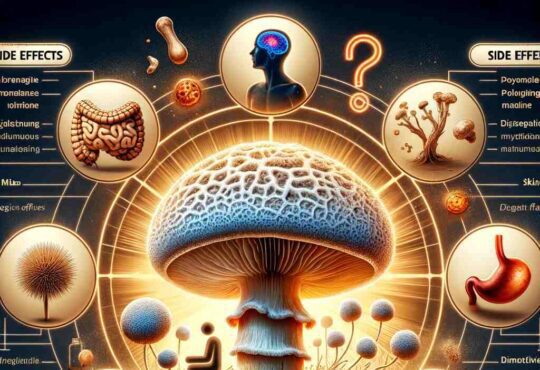The impact of food on memory is often overlooked but significant. Our diet plays a crucial role in maintaining cognitive function, and certain foods can either support or harm our memory. Understanding what are the 5 worst foods for memory can help us make informed choices about our dietary intake and minimize the risk of potential issues.
Numerous studies have investigated the relationship between food and memory, highlighting specific types of foods that may negatively affect cognitive function. For instance, a high intake of processed foods and sugary beverages has been found to be associated with a decline in memory performance in both young adults and older individuals. Diets high in saturated fats and trans fats have been linked to an increased risk of developing conditions such as Alzheimer’s disease.
By being aware of what are the 5 worst foods for memory, we can make conscious decisions about what we consume each day, ensuring that our bodies receive the nutrients they need while minimizing potential harm to our cognitive health.
What are the 5 worst foods for memory: Understanding Memory and Diet
How Food Affects Memory
Nutrient-rich foods play a crucial role in fueling our brain health. Eating a balanced diet is essential for optimal function. Our brains require specific nutrients, such as omega-3 fatty acids, antioxidants, vitamins, and minerals, to perform at their best. These nutrients help support cognitive function and protect against age-related memory decline.
On the flip side, poor dietary choices can have adverse effects on memory and cognitive abilities. Consuming an excessive amount of processed foods high in sugar and unhealthy fats can lead to inflammation in the body. This inflammation negatively impacts memory and can contribute to cognitive decline over time.
To promote good memory health, it’s important to incorporate nutrient-dense foods into our diet. Foods like fatty fish (rich in omega-3s), berries (packed with antioxidants), leafy greens (abundant in vitamins), nuts and seeds (a source of healthy fats), and whole grains (providing essential nutrients) are all beneficial for supporting optimal brain function.
Chronic Inflammation’s Role in Memory Decline
Chronic inflammation has been linked to various health issues, including memory decline. Certain foods can trigger an inflammatory response within the body when consumed regularly or in large quantities. Processed foods that are high in added sugars, unhealthy fats like trans fats or saturated fats, and refined carbohydrates have been found to contribute significantly to inflammation.
Inflammation affects the communication between brain cells, impairing cognitive processes such as learning and memory formation. It can also damage blood vessels that supply oxygen and nutrients to the brain. By reducing inflammation through dietary changes—such as cutting back on processed foods—we can potentially improve our memory health.
- Including anti-inflammatory foods in our diet can be beneficial for combating chronic inflammation.
- Foods like fatty fish (rich in omega-3s), olive oil (containing monounsaturated fats), green leafy vegetables (packed with antioxidants), turmeric (a spice with anti-inflammatory properties), and
- Nuts and seeds (providing healthy fats) can help reduce inflammation and support memory function.
What are the 5 worst foods for memory: Eating Habits That Lead to Brain Fog
Our eating habits can have a significant impact on our cognitive function, including memory. Skipping meals or having irregular eating patterns can cause brain fog—a state characterized by difficulty concentrating, poor memory recall, and mental fatigue. When we don’t provide our brains with consistent fuel throughout the day, it can affect our ability to think clearly and remember information.
Overeating, especially foods that are high in calories and low in nutritional value—think fast food, sugary snacks, and processed treats—can also hinder mental clarity.
what are the 5 worst foods for memory
Trans Fats’ Impact on the Brain
Consuming trans fats poses a significant risk to memory function. These unhealthy fats can be found in processed snacks, fried foods, and margarine. Studies have shown that a high intake of trans fats increases the likelihood of memory impairment. To support brain health and enhance memory, it is crucial to avoid these sources of trans fats.
Sugary Drinks and Memory Dysfunction
High sugar intake from beverages can have detrimental effects on learning and memory processes. Regular consumption of sugary drinks has been linked to cognitive decline over time. Opting for water or unsweetened alternatives is beneficial for overall brain function and helps protect against memory dysfunction.
Refined Carbs and Cognitive Decline
Refined carbohydrates are another culprit. These carbs cause blood sugar spikes, which can impair cognitive function. Examples of refined carbs include white bread, pasta, and pastries. To maintain stable blood sugar levels and support optimal memory, it is advisable to replace refined carbs with whole grains.
- Being mindful of our dietary choices is essential.
- Consuming excessive amounts of trans fats can increase the risk of memory impairment.
- Processed snacks, fried foods, and margarine are common culprits in this regard.
- Sugary drinks also pose a threat to our cognitive abilities.
- High sugar intake from beverages has been shown to impair learning and memory processes over time.
- It’s important to opt for healthier alternatives like water or unsweetened beverages to support overall brain function.
Refined carbohydrates can contribute to cognitive decline by causing blood sugar spikes that negatively affect our memory capabilities. Foods such as white bread, pasta, and pastries fall into this category. Choosing whole grains instead helps maintain stable blood sugar levels and supports optimal memory performance.


What are the 5 worst foods for memory: Additional Culprits Affecting Memory
Harmful Effects of Certain Oils and Alcohol
Excessive alcohol consumption can wreak havoc on your memory. It damages the brain cells responsible for forming new memories, making it harder to recall information. So, if you find yourself reaching for that extra drink at happy hour, think twice about the impact it could have on your memory.
But alcohol isn’t the only culprit here. Unhealthy oils, like vegetable oil, can also contribute to memory issues. These oils contain high levels of omega-6 fatty acids, which can lead to oxidative stress in the brain. This oxidative stress damages brain cells and impairs memory function. So next time you’re cooking up a storm in the kitchen, opt for healthier cooking oils like olive oil or coconut oil instead.
The Risks of Red and Processed Meats
If you’re a meat lover, you might want to pay attention to this one. High consumption of red and processed meats has been linked to cognitive decline and memory problems. These meats contain nitrates, additives, and saturated fats that are harmful to brain health.
- Nitrates found in processed meats can reduce blood flow to the brain, affecting its ability to function properly.
- Additives used in these meats may also have negative effects on memory and cognition.
- Saturated fats found in red meat can increase inflammation in the body, including the brain.
To protect your memory, consider opting for lean proteins like fish or plant-based alternatives instead of red or processed meats. Fish is rich in omega-3 fatty acids that support brain health and memory function.
What are the 5 worst foods for memory: Dairy and Artificial Sweeteners’ Negative Impact
Dairy products have long been associated with various health benefits due to their calcium content. However, some studies suggest that dairy products may impair cognitive function and contribute to memory issues in certain individuals.
Artificial sweeteners are another potential culprit. Some research has linked the consumption of artificial sweeteners to memory impairments and cognitive decline. While more studies are needed to fully understand the relationship, it may be worth considering natural sweeteners like honey or maple syrup as alternatives.
If you’re concerned about your memory, it might be worth exploring non-dairy alternatives such as almond milk or coconut milk. These options can provide similar nutritional benefits without the potential negative impact on memory.
What are the 5 worst foods for memory: Foods that Exacerbate Memory Problems
Fried Foods’ Role in Memory Loss
- Regularly consuming fried foods increases the risk of memory loss.
- These deep-fried snacks contain harmful trans fats that can negatively affect brain health.
- When you indulge in crispy fries or greasy chicken wings, you’re not just satisfying your taste buds; you could be compromising your memory function.
- To protect your memory, it’s essential to prioritize baked or grilled options instead.
- Opting for these healthier cooking methods can help reduce the intake of trans fats and safeguard your brain health.


White Bread, Butter, and Full-Fat Cheese
White bread, butter, and full-fat cheese are often high in unhealthy saturated fats. These foods can contribute to inflammation in the body, including the brain, which can hinder memory performance over time.
While they may be tasty treats on occasion, relying on them as dietary staples could have long-term consequences for your cognitive abilities. Instead of white bread, consider opting for whole-grain alternatives that provide more fiber and nutrients.
Similarly, swapping out butter for healthier spreads like avocado or nut butters can offer better nutritional benefits. Choosing low-fat cheeses instead of full-fat varieties can help reduce your intake of unhealthy saturated fats.
Mercury-Rich Fish and Brain Health Risks
Certain fish species high in mercury can pose risks to brain health if consumed regularly. Prolonged exposure to mercury from fish consumption may lead to memory problems and other cognitive impairments over time. It’s crucial to be mindful of the types of fish you consume and opt for low-mercury options whenever possible. Fish such as salmon, trout, and sardines tend to have lower levels of mercury while still providing essential omega-3 fatty acids that support brain function.
- Being aware of the foods that may exacerbate memory problems is key.
- Regularly consuming fried foods loaded with trans fats can increase the risk of memory loss.
- Opting for baked or grilled alternatives can help protect your memory function.
Similarly, foods high in unhealthy saturated fats like white bread, butter, and full-fat cheese can contribute to inflammation and hinder memory performance. Choosing whole-grain options, healthier spreads, and low-fat cheeses is preferable. Lastly, certain fish species high in mercury can pose risks to brain health. Opting for low-mercury fish options ensures safer brain function support.
What are the 5 worst foods for memory: Fast Food and Processed Meals
Fast Food’s Detrimental Effects on Memory
Regular consumption of fast food has been shown to have a negative impact on memory retention. This is primarily due to the high levels of unhealthy fats, sodium, and sugar present in these types of meals. These ingredients can contribute to cognitive decline over time, impairing our ability to remember and retain information effectively.
Limiting fast food intake promotes better overall cognitive abilities
By reducing the amount of fast food we consume, we can promote better overall cognitive abilities, including memory function. Instead of relying on fast food for convenience or as a regular meal option, it’s beneficial to explore healthier alternatives that provide the necessary nutrients for optimal brain health.
Ready Meals as a Threat to Brain Health
Pre-packaged ready meals are another category of processed foods that pose a threat to our brain health. These meals often lack essential nutrients required for optimal brain function. The processed ingredients used in ready meals can also impair memory formation over time.
Preparing fresh meals using whole ingredients benefits memory health
To combat the negative effects of ready meals on memory, it is advisable to prepare fresh meals using whole ingredients whenever possible. Fresh fruits and vegetables, lean proteins, and whole grains contain essential vitamins, minerals, and antioxidants that support brain health and enhance memory function.
- Making conscious choices about the foods we consume plays a crucial role in maintaining good cognitive abilities.
- Opting for nutritious options rather than relying on fast food or heavily processed ready meals can significantly improve our memory retention and overall brain health.
It’s important to note that while occasional indulgence in fast food or convenience meals may not cause immediate harm to our memory function, consistent consumption over time can lead to long-term consequences. By prioritizing fresh and wholesome foods in our diet, we give ourselves the best chance at maintaining sharp memory skills well into the future.
What are the 5 worst foods for memory: Moderation and Dietary Choices
Importance of Moderation in Diet
Maintaining a healthy diet for optimal memory function requires moderation. It’s all about finding the right balance. Avoiding excessive consumption of any specific food group promotes overall health and well-being, including brain health.Practicing portion control and mindful eating is key.
Balancing Memory-Supporting Foods
Incorporating memory-supporting foods into your diet can enhance cognitive function and promote better memory retention. Foods like berries, leafy greens, and nuts are known to be beneficial for the brain.
However, it’s important to remember that no single food can guarantee improved memory on its own. Instead, strive for a well-rounded diet that includes a variety of nutrient-rich foods.
- A balanced intake of essential nutrients is crucial for maintaining optimal brain health.
- Consuming a diverse range of fruits, vegetables, whole grains, lean proteins, and healthy fats.
- It provides the necessary vitamins and minerals needed for proper cognitive function. This ensures that your brain receives the fuel it needs to perform at its best.
Research suggests that certain diets, such as the Mediterranean diet or the DASH (Dietary Approaches to Stop Hypertension) diet, may have positive effects on memory and overall brain health. These diets emphasize whole foods and limit processed foods or added sugars.
- It’s important to consider not only what you should eat but also what you should avoid or consume in moderation.
- While there isn’t a definitive list of “worst” foods for memory,
- Some research suggests that high intake of saturated fats may have negative effects on cognitive function.
- Animal studies have shown that diets high in saturated fats.
- It can lead to impaired memory and learning abilities.
- Older adults who consume diets rich in trans fats may experience greater cognitive decline over time.
It’s worth noting that individual responses to different types of foods may vary. Some people may be more sensitive to certain dietary factors than others. It’s always a good idea to consult with a healthcare professional or registered dietitian for personalized advice on dietary choices and memory support.


What are the 5 worst foods for memory: Foods to Avoid for Dementia Prevention
Identifying Memory-Harming Foods
- Processed foods that are high in unhealthy fats and sugars can pose a threat to our memory.
- These foods, often found in the form of packaged snacks, fast food, and sugary beverages.
- It lack the essential nutrients needed for optimal brain function.
- It is important to be aware of the negative impact that certain food additives can have on our cognitive abilities as well.
- By reading labels and understanding ingredients, we can identify these memory-harming foods and make more informed choices.
What are the 5 worst foods for memory: Alternatives to Potentially Harmful Foods
One way to improve brain health and protect our memory is by replacing trans fats with healthier fats such as olive oil or avocado. Trans fats not only increase the risk of heart disease but also have detrimental effects on cognitive function. Opting for healthier fat sources provides the brain with necessary nutrients while reducing harmful effects.
Choosing whole grains over refined carbs is another beneficial dietary change for maintaining good brain health. Whole grains contain important nutrients like fiber, vitamins, minerals, and antioxidants that support overall brain function. On the other hand, refined carbohydrates found in white bread, pasta, and pastries lack these essential nutrients and can lead to inflammation in the body.
Selecting lean proteins over red or processed meats supports memory function. Lean proteins such as fish, poultry without skin, beans, legumes, and tofu provide necessary amino acids that aid in neurotransmitter production. Red meats and processed meats like bacon or sausages contain higher levels of saturated fats which may contribute to cognitive decline.
- By making these alternative food choices – opting for healthier fats like olive oil or avocado instead of trans fats, choosing whole grains over refined carbs, and selecting lean proteins instead of red or processed meats – we can support our brain health and reduce the risk of dementia.
Best Foods for Memory Support
Natural Enhancers for Brain Health
Certain herbs and spices like turmeric and rosemary have been linked to improved memory. These natural enhancers contain compounds that can protect the brain from oxidative stress and inflammation, which are known to contribute to cognitive decline.
- Turmeric, with its active ingredient curcumin, has been shown to have neuroprotective properties and may help improve memory and attention span.
- Rosemary, on the other hand, contains compounds that can enhance cognitive function and improve memory recall.
Antioxidant-rich fruits such as blueberries can also enhance cognitive abilities. Blueberries are packed with antioxidants called flavonoids, which have been shown to improve memory and delay age-related cognitive decline. These powerful berries may also help reduce inflammation in the brain, improving communication between brain cells.
Including these natural enhancers in your diet may benefit overall brain health. Adding a sprinkle of turmeric to your scrambled eggs or incorporating rosemary into your roasted vegetables can be simple yet effective ways to boost your memory power naturally.
Comprehensive List of Beneficial Foods for Memory
There are several options you can incorporate into your diet:
- Berries: Berries such as strawberries, blackberries, raspberries, and blueberries are rich in antioxidants that protect the brain from oxidative stress and inflammation.
- Fatty Fish: Fatty fish like salmon, trout, and sardines are excellent sources of omega-3 fatty acids. These healthy fats play a crucial role in brain health and have been associated with improved memory function.
- Dark Chocolate: Good news for chocolate lovers! Dark chocolate contains flavonoids that not only provide antioxidant benefits but also promote blood flow to the brain, enhancing cognitive function.
- Walnuts: Walnuts are packed with nutrients that support brain health, including antioxidants, omega-3 fatty acids, and vitamin E. Incorporating a handful of walnuts into your daily snack routine can be beneficial for memory.
- Green Tea: Green tea contains compounds that have been shown to enhance brain function and improve memory. The combination of caffeine and antioxidants in green tea can provide a natural boost to your cognitive abilities.
Other beneficial options include broccoli, pumpkin seeds, eggs, and avocados. Broccoli is rich in antioxidants and vitamin K, which is known to support brain health. Pumpkin seeds are packed with magnesium, iron, zinc, and antioxidants that contribute to optimal brain function. Eggs contain several nutrients important for brain health, including vitamins B6 and B12, folate, and choline. Avocados are an excellent source of healthy fats that support overall brain health.
Outcomes
The impact of diet on memory cannot be underestimated. Through exploring the five worst foods for memory and additional culprits affecting memory, it is clear that certain dietary choices can have a detrimental effect on cognitive function. Fast food and processed meals, in particular, have been shown to contribute to memory problems.
- However, by practicing moderation and making conscious dietary choices, individuals can take steps towards preventing dementia and supporting their memory.
- It is crucial to be mindful of the foods we consume and their potential impact on our brain health.
- By avoiding the five worst foods for memory and opting for a diet rich in nutrients that support cognitive function,
- Such as fruits, vegetables, whole grains, and lean proteins, we can enhance our memory and overall brain health.
- It is recommended to consult with a healthcare professional or nutritionist for personalized advice on improving memory through diet.
- By taking these steps, we can prioritize our cognitive well-being and maintain a sharp mind throughout our lives.


FAQs About what are the 5 worst foods for memory
What are the 5 worst foods for memory?
The 5 worst foods for memory include:
- Processed Foods: High in trans fats and artificial additives, processed foods can negatively impact memory function.
- Sugary Snacks: Consuming excessive sugar can impair cognitive abilities and contribute to memory decline.
- Fried Foods: Regular consumption of fried foods has been linked to poor memory and cognitive decline.
- Alcohol: Excessive alcohol intake can lead to memory loss and hinder the brain’s ability to form new memories.
- High-Sodium Foods: A diet high in sodium can disrupt proper brain function, affecting memory retention.
What are the 3 foods that help maintain memory?
There are several foods that can help maintain memory, but three of the most effective ones are blueberries, fatty fish, and turmeric. Blueberries are rich in antioxidants and have been shown to improve brain function and delay brain aging. Fatty fish, such as salmon, trout, and sardines, are high in omega-3 fatty acids, which are essential for brain health and can improve memory and cognition. Turmeric contains a compound called curcumin, which has anti-inflammatory and antioxidant properties that can enhance memory and reduce the risk of brain diseases. Including these foods in your diet can help support brain health and maintain memory.
How Does Food Affect My Memory?
Food can have a significant impact on our memory. Certain nutrients and compounds found in food can either enhance or impair our cognitive function and memory recall. For example, omega-3 fatty acids, commonly found in fatty fish like salmon, have been shown to improve memory and cognitive performance. These fatty acids are essential for brain health and can help protect against age-related cognitive decline.
- On the other hand, a diet high in saturated fats and processed foods has been linked to memory impairment and a higher risk of developing dementia.
- These types of foods can lead to inflammation in the body, including the brain, which can negatively affect memory and cognitive function.
- Additionally, certain vitamins and minerals play a crucial role in brain health and memory.
- B vitamins, for example, are necessary for the production of neurotransmitters that are involved in memory formation and recall.
- Foods rich in B vitamins include leafy green vegetables, whole grains, and lean meats.
Antioxidants, found in fruits and vegetables, also play a role in protecting the brain from oxidative stress, which can damage brain cells and impair memory. Foods high in antioxidants, such as berries, spinach, and dark chocolate, can help improve memory and cognitive function.
It’s important to note that while certain foods can support memory and cognitive function, no single food or nutrient is a magic solution. A healthy diet overall, consisting of a variety of nutrient-dense foods, is key for optimal brain health and memory function. It’s also important to stay hydrated, as dehydration can negatively impact cognitive performance.
Bottom Line
What we eat can have a significant impact on our memory. A diet rich in omega-3 fatty acids, B vitamins, antioxidants, and other nutrient-dense foods can support brain health and enhance memory. Conversely, a diet high in saturated fats and processed foods can impair memory and increase the risk of cognitive decline. By making healthy food choices and maintaining a balanced diet, we can support our memory and overall brain function.






